Advertisement
This Yoga Sequence For PMS Is Everything Your Body Needs To Feel Supported

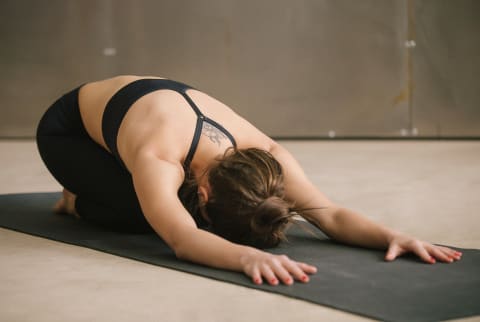
Not all women experience premenstrual syndrome, and PMS can be somewhat medically vague, with upward of a hundred different symptoms possible, all of which are unpleasant (headaches, bloating, cramping, and so on). Generally, experiencing three to five of the symptoms regularly, prior to menstruating, is considered PMS.
PMS is thought to be caused by a combination of imbalanced hormones and a sluggish liver. This sequence has an element of challenge to it and is a good way to shift into a place that is unhurried and to allow ourselves the time and space to dwell on our gratitudes, all that we appreciate, whether we suffer from PMS or not.
If you live in a body that doesn't bleed or experience PMS, explore this sequence during the waning of the moon. Waning energy is slowing, diminishing, and a wonderful time to experience gratitude for what is.
Sequence to relieve PMS, or to slow down & experience gratitude:
Begin sitting on your heels
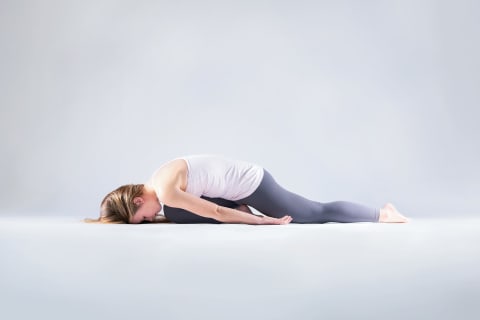
Sitting on your heels, rest your hands forward and extend your left leg straight back. Relax your torso forward, resting your head on the ground. Slide your arms back along your sides, palms up. Relax here for 3 minutes. Rise up, switch the legs, and repeat.
Return to sitting on your heels
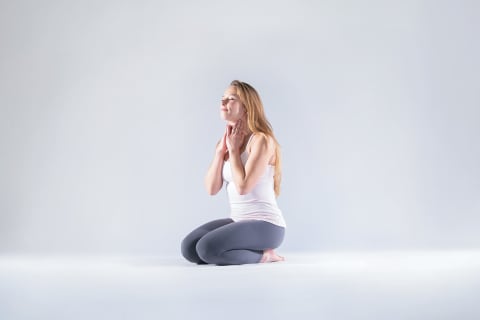
Return to sitting on your heels. Use your hands to gently massage all along your throat, from your collarbones to under your chin, for 2 minutes. Then, begin to massage your ears and earlobes with the palms of your hands for 2 to 3 minutes.
Place your hands in the Venus mudra
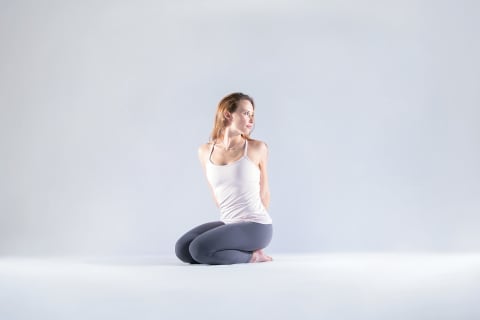
Still on your heels, place your hands in the Venus mudra at the small of your back. Inhale as you slowly twist your torso to the left, then exhale as you twist to the right, for 3 minutes. End with an inhale back at the center, consciously drawing the energy up your spine.
Relax down onto your back
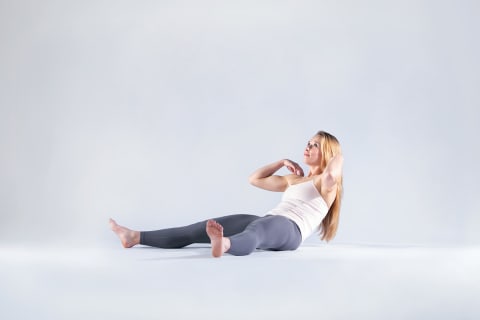
Relax down onto your back and bring your hands to your shoulders, fingers in front and thumbs on the back of your shoulders, elbows on the ground. Spread your legs comfortably wide. Tune in to all the muscles of your body and lift your upper body, bit by bit, as slowly as possible, until your torso is upright; then slowly fold forward from the waist until your nose is on the ground (or close to it). Hold this forward-fold version with long deep breathing for 3 minutes.
Return to lying on your back
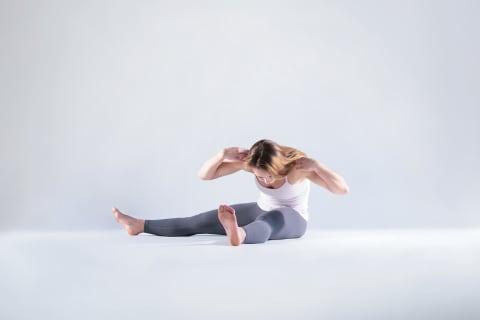
Return to lying on your back, in the same posture. This time, you'll repeat the lifting and folding, but the destination is nose to left knee, holding for 1 minute, concluding with 3 deep breaths. Return to your back, and then repeat for the right knee.
Come up from lying on your back
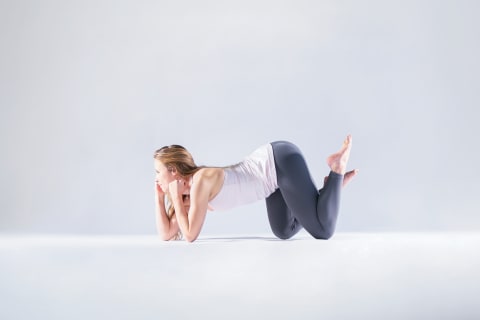
Come up from lying on your back and prepare for a little bit of wildness! Lower yourself onto your knees and elbows. Lift your hands and forearms so your elbows are supporting your upper body. Lift your head as well as your lower legs and begin to "walk" on your elbows and knees. Try to keep your feet pulled into your thighs. You do not have to travel far, but continue this walking motion for 3 minutes.
Lie back down
Completely relax on your back.
Sit back up and take lotus pose
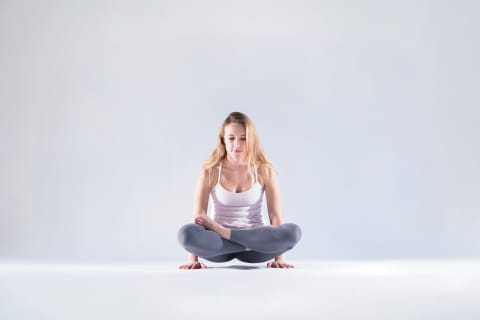
Sit upright and if accessible, take full lotus pose (each foot on the opposite thigh). If full lotus is not possible, try half lotus (one foot on one thigh). If neither of these postures is possible, take the sukhasana posture with the tightest legs possible. Place your hands on the ground on either side of your hips. Push into your hands and swing your body forward. Bring your hands forward and again push into your arms to swing your body forward. Continue propelling your body forward with the strength of your arms for 3 minutes.
Prepare for back platform pose
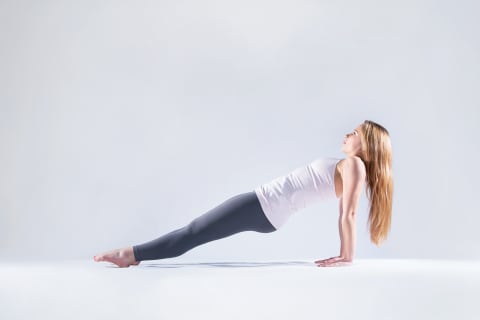
In the following dynamic version of back platform pose, begin in a seated position, legs in front, feet hip-width apart. Place your hands on the ground behind you. Engage your legs and abdominals and lift your body up so you are balanced on your heels and hands. Begin "walking" in this pose. It's OK if your hips dip down, but try to keep your pelvis up and your body in a straight line. This takes significant effort—and again, you do not have to go far. Take little "steps" with your heels and hands for 1 to 2 minutes.
Shavasana
Relax onto your back into shavasana. Completely and deeply let go. Consciously relax your entire body. Allow 10 to 15 minutes here to absorb and integrate the practice.
Excerpted from Moon Path Yoga: Kundalini Practices and Rituals for Women To Align With the Lunar Cycles by Sierra Hollister (Shambhala), photo credit: Andrea Killam.